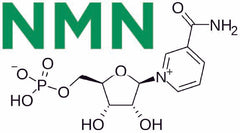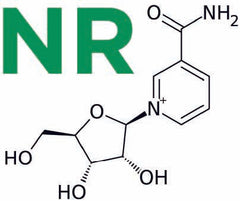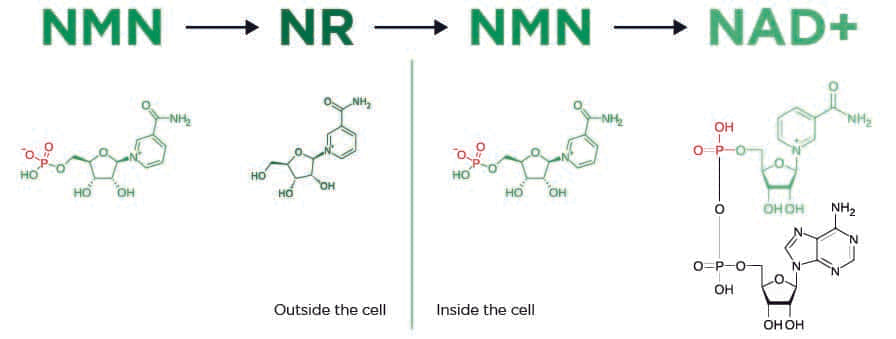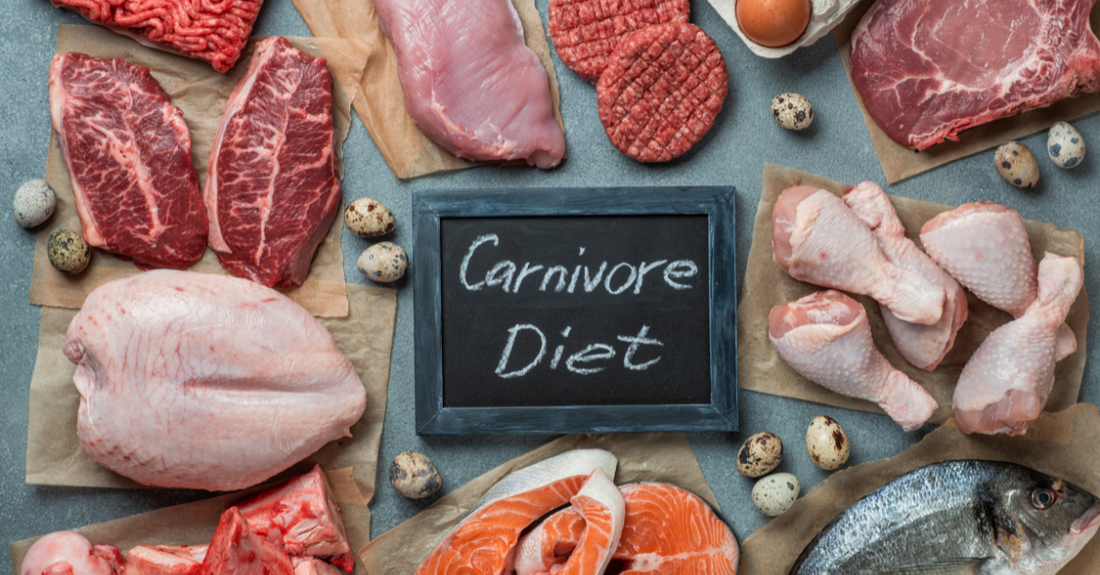NMN (Nicotinamide MonoNucleotide) has become very popular in a short time, thanks in part to the attention it has received from anti-aging scientist David Sinclair. Recently, it also received attention on the Dutch TV programme Jinek. In it, Prof Andrea Maier talked about the results of her research on NMN in which it was shown that supplementation with NMN increases the amount of NAD+ in the body.
However, there is one big problem. NMN is considered an unauthorised Novel Food by the European Commission. Novel foods are foods or ingredients that were not used for human consumption within the European Union before 15 May 1997. The European Commission must approve new foods and ingredients before they can be sold. For this reason, the European Food Safety Authority (EFSA) assesses whether it is safe or not. Because NMN was not on the market before 1997, it has been given the status of unauthorised Novel Food and its safety must be demonstrated before it can be sold.
NMN is therefore no longer allowed to be sold in the EU. Fortunately, there is a great alternative: NR (Nicotinamide Riboside). This is a molecule that is almost identical to NMN and also contributes to increasing NAD+ in the body. In this article, we explain what NAD+ is and the differences between NMN and NR.
What is NAD+
NAD+ (Nicotinamide Adenine Dinucleotide) is an essential coenzyme required for life and cellular functions. Enzymes are catalysts that enable biochemical reactions. Coenzymes are 'auxiliary molecules' that enzymes need in order to function. Without NAD+, there is no life. NAD+ is used by many proteins throughout the body, such as sirtuins, which repair damaged DNA. It is also important for mitochondria, the cell's power plants that produce the energy for our body.
The problem is that as we age, our NAD production decreases and the NAD level in our cells drops. The amount also drops due to stress factors, such as alcohol consumption, intense exercise and lack of sleep.
Anti-aging scientists are therefore constantly looking for ways to maintain the amount of NAD+ in the body that will slow down aging processes. NMN and NR may play an important role here.
What is NMN?

NMN is a Vitamin B3 derivative naturally produced in the body and found in fruits and vegetables, including cabbage, cucumber, tomato and avocado. NMN is a precursor of NAD+. It is a building block required for the production of NAD+.
Studies on animals have shown that NMN supplementation leads to an increase in NAD+ levels in the body. This activates the sirtuins, prolonging the lifespan of yeasts, worms and mice. Studies on animals are promising, but little research has been done on humans.
Recently, Prof Andrea Maier published a study showing that NMN supplementation is safe and leads to higher levels of NAD+ in the blood[1]. Moreover, it had a positive impact on endurance and general health conditions of the test subjects.
What is NR?

NR (Nicotinamide Riboside), like NMN, is a form of vitamin B3 and occurs naturally in minimal amounts in milk and yeast. However, you would have to drink a lot of milk to get a noticeable difference in NR from your diet.
NR, like NMN, is a building block for the production of NAD+. They are chemically identical, except for one phosphate group on NMN. Research has shown that this extra phosphate group on NMN must first be removed, after which it is converted into nicotinamide riboside before it can enter the cell[2]. In the cell, NR is converted back into NMN and then into NAD+. This means that consumption of NR is more efficient because the first step is skipped. In other words, NR can enter the cell immediately and NMN cannot.

Studies show that both NMN and NR are safe to consume. However, more studies have been done showing the effectiveness of supplementation with NR than NMN. [3][4][5][6][7][8][9][10][11][12][13][14][15]
Conclusion
Nicotinamide Riboside (NR) is an excellent alternative to NMN NR has not received as much publicity as NMN, but more clinical research is available on its efficacy and safety for humans. Both molecules are very similar and they both play a role in NAD+ production. Scientific research has not (yet) been able to show which of them is more effective. While NR is authorized in Europe, NMN is not. This means that NR is currently the best choice.
References
- The efficacy and safety of β-nicotinamide mononucleotide (NMN) supplementation in healthy middle-aged adults: a randomized, multicenter, double-blind, placebo-controlled, parallel-group, dose-dependent clinical trial ↩︎
- NRK1 controls nicotinamide mononucleotide and nicotinamide riboside metabolism in mammalian cells ↩︎
- Nicotinamide riboside is uniquely and orally bioavailable in mice and humans ↩︎
- An open-label, non-randomized study of the pharmacokinetics of the nutritional supplement nicotinamide riboside (NR) and its effects on blood NAD+ levels in healthy volunteers ↩︎
- Chronic nicotinamide riboside supplementation is well-tolerated and elevates NAD+ in healthy middle-aged and older adults ↩︎
- A randomized placebo-controlled clinical trial of nicotinamide riboside in obese men: safety, insulin-sensitivity, and lipid-mobilizing effects ↩︎
- Safety and Metabolism of Long-term Administration of NIAGEN (Nicotinamide Riboside Chloride) in a Randomized, Double-Blind, Placebo-controlled Clinical Trial of Healthy Overweight Adults ↩︎
- Nicotinamide Riboside Augments the Aged Human Skeletal Muscle NAD+ Metabolome and Induces Transcriptomic and Anti-inflammatory Signatures ↩︎
- Nicotinamide riboside supplementation alters body composition and skeletal muscle acetylcarnitine concentrations in healthy obese humans ↩︎
- The acute effect of metabolic cofactor supplementation: a potential therapeutic strategy against non-alcoholic fatty liver disease ↩︎
- Boosting NAD level suppresses inflammatory activation of PBMCs in heart failure ↩︎
- Nicotinamide riboside supplementation does not alter whole-body or skeletal muscle metabolic responses to a single bout of endurance exercise ↩︎
- Boosting NAD+ blunts TLR4-induced type I IFN in control and systemic lupus erythematosus monocytes ↩︎
- The NADPARK study: A randomized phase I trial of nicotinamide riboside supplementation in Parkinson's disease ↩︎
- Safety and Tolerability of Nicotinamide Riboside in Heart Failure With Reduced Ejection Fraction ↩︎











